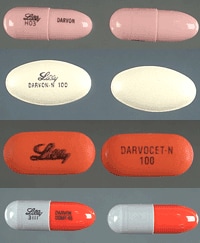
February 2, 2011 — An estimated 10 million patients have used the pain reliever propoxyphene and were sent scrambling to doctors' offices when it was recently pulled from the market. Many physicians are still dealing with the aftermath of the product, first approved by the US Food and Drug Administration (FDA) in 1957.
"Propoxyphene is the worst drug in history," Ulf Jonasson, doctor of public health, from the Nordic School in Gothenburg, Sweden, told Medscape Medical News. The researcher played a role in the decision to stop the pain reliever in the United Kingdom, Sweden, and later in the entire European Union.
"No single drug has ever caused so many deaths," Dr. Jonasson said.
| Clinicians are now prescribing analgesic alternatives to propoxyphene. |
Propoxyphene was banned in the United Kingdom 5 years ago because of its risk for suicide. It was taken off the market in Europe in 2009 over concerns about fatal overdoses and now in the United States for arrhythmias.
"I agree that propoxyphene is among the worst drugs in history," Eduardo Fraifeld, MD, president of the American Academy of Pain Medicine, said in an interview. "I'm surprised it stayed on the market so long. It's addictive, in my experience not very effective, and toxic."





